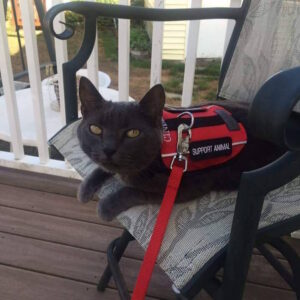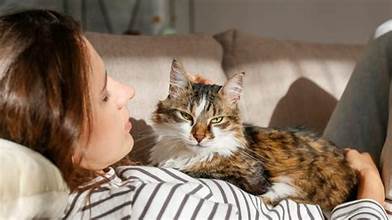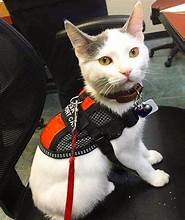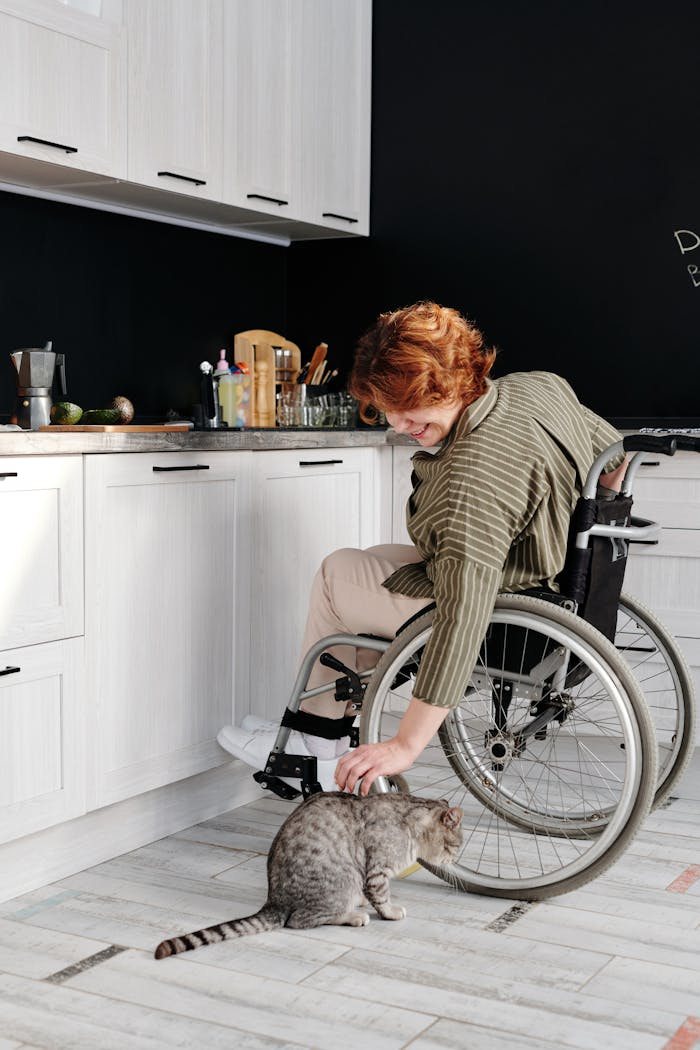Quiet Strength, Calming Presence, and Unconditional Love from Feline Friends
When most people think of emotional support animals, they envision a loyal dog offering comfort and companionship. However, for many disabled adults, particularly those with limited mobility, cognitive disabilities, or anxiety, cats provide a unique kind of support: calm, independent, and deeply grounding.
Here’s why cats can make ideal emotional support animals (ESAs) for adults with disabilities, and how their quiet companionship can empower everyday living.
🐾 1. Low-Maintenance, High-Impact Companionship
Cats are known for being low-maintenance, which is especially beneficial for adults with physical or energy limitations.

- Unlike dogs, cats don’t require walks or constant attention.
- They use litter boxes, groom themselves, and thrive in smaller, quieter spaces.
- This makes them ideal for individuals with limited mobility or chronic fatigue.
Example: Someone using a wheelchair or living with chronic pain can care for a cat without needing to leave the house or perform physically strenuous tasks.
🧠 2. Calming Presence That Supports Mental Wellness
Cats have a naturally soothing presence. Their gentle purring, warm bodies, and predictable routines provide emotional grounding and sensory comfort.
- Studies show cat purring can reduce stress and anxiety, even lowering blood pressure.
- Simply petting a cat can produce oxytocin, the hormone associated with bonding and emotional calm.
- Cats often sense distress and will quietly sit near their owner, offering presence without pressure.
Fun Fact: The frequency of a cat’s purr (between 25–150 Hz) has even been linked to healing benefits for bones and muscles!
🧍♀️ 3. Promoting Independence and Daily Structure
For adults with cognitive disabilities or executive functioning difficulties, caring for a cat provides purpose, structure, and routine.

- Feeding times, litter box maintenance, and brushing can be integrated into a manageable daily schedule.
- These tasks reinforce self-reliance and responsibility, without becoming overwhelming.
- Cats offer non-demanding companionship, allowing individuals to care for another living being without overstimulation.
Tip: Even small interactions—like calling the cat’s name or engaging in play—can build confidence and reduce feelings of helplessness.
💛 4. Deep, Quiet Emotional Bonds
Cats don’t force affection—they wait for connection to happen naturally. This is especially comforting for individuals who may be socially anxious, autistic, or have PTSD.

- Cats allow emotional space, but respond with warmth when approached with kindness and affection.
- This kind of bond feels mutual and safe, especially for people who have experienced trauma or struggle with overstimulation.
- Many individuals feel a sense of companionship and safety simply from knowing their cat is near.
Real-Life Example: An adult with PTSD shares that her cat often curls beside her during night terrors, offering silent support and shortening her episodes.
🧳 5. Ideal for Small Spaces and Quiet Lifestyles
Many disabled adults live in apartments, assisted living, or homes where space and noise levels are a concern. Cats adapt beautifully to these environments.
- They don’t bark, jump on guests, or need outdoor access.
- Their presence brings comfort without disruption.
- Emotional support cats are often approved for no-pet housing when properly documented.
✨ Final Thoughts: The Quiet Power of Cats
While they may not come running when called or learn complicated tricks, cats offer something just as powerful: a calm, quiet presence that doesn’t demand, but deeply supports. For disabled adults seeking comfort without chaos, independence without isolation, and love without pressure, a cat may be the perfect emotional support companion. We’d love to hear your experiences with emotional support cats in the comments below!




